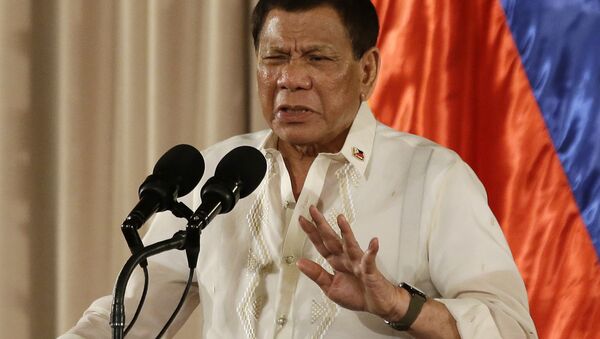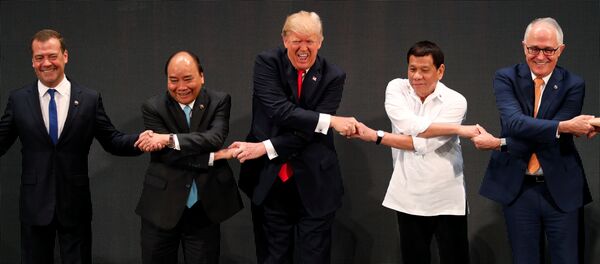The new declaration would also ban the presence of the media in the region. The objective behind the extension is the "total eradication of Muslim extremists and communists," Al Jazeera reported.
Considering how many people have been killed and forcibly displaced from their homes, not everyone agrees that Duterte's motives are about creating peace.
Speaking to Radio Sputnik's Loud & Clear, Adrian Bonifacio, national chair of the leftist coalition Anakbayan-USA, says Duterte's extension is an attempt "to kind of consolidate power and silence the opposition of people who are fighting against the military rule in Mindanao."
The ban on media doesn't help the situation either, says Bonifacio. For him, it means that Duterte's administration will simply be given the go-ahead to act as it wishes without having to worry about repercussions.
"It really harkens back to the days of previous presidents, including former Philippine President Gloria Macapagal Arroyo, under which there was a huge media massacre in Ampatuan," says Bonifacio. "This is something that we really have to be careful about."
But while former US President Barack Obama was vocal about human rights violations in the Philippines, Duterte has received nothing but "explicit support" from US President Donald Trump. This, says Bonifacio, has only worked to "embolden" the 57-year-old native of Maasin, Philippines.
"Duterte has really been emboldened… emboldened to take more action not just against people who he claims are destabilizing the political order, but he has kind of expanded that to legal activists, community organizers, and human rights defenders in addition to the people who are waging an armed struggle," said Bonifacio. "We can see that Duterte is trying to really consolidate political power and we can see that he's trying to do it with an iron fist method."
A decision on Duterte's request is expected by Friday.


